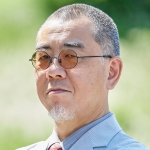Customer Service: XXX
ADDRESS
123 Main Street, Anytown
CA 12345 USA.
XXX

Prof. Tsuyoshi FUNAKI is a principle investigator (PI) of Power System Laboratory in Division of Electrical, Electronic and Information Engineering, Graduate School of Engineering in Osaka University. He is currently working on the research and development of renewable energy system and smart grid technology based on power electronics using incoming wide band gap semiconductor power devices; e.g. SiC, GaN, and also working on reliability assessment of power supply facilities. He received the B.E. and M.E. degrees in electrical engineering and the Ph.D. degree all from Osaka University, Osaka, Japan. He was on the staff of Research Associate with Osaka University in 1994, and promoted to Associate Professor in 2001. In 2002, he was an Associate Professor with Kyoto University. Now, he has been a full Professor with Osaka University since 2008.

Makoto Hagiwara (Senior Member, IEEE) was born in Tokyo, Japan, in 1979. He received the B.S., M.S., and Ph.D. degrees in electrical engineering from the Tokyo Institute of Technology, Tokyo, Japan, in 2001, 2003, and 2006, respectively. From 2006 to 2015, he was an Assistant Professor with the Department of Electrical and Electronic Engineering, Tokyo Institute of Technology. Since 2015, he has been an Associate Professor in the same institute, whose name is changed to Institute of Science Tokyo from 2024. His research interests include dc-to-dc converters for electric trains/vehicles, high-voltage high-power converters for utility applications and renewable energies, and HVDC technologies. Dr. Hagiwara was the recipient of the 2010 International Power Electronics Conference (IPEC-Sapporo/ECCE-Asia) second prize paper award, the 2012 and 2013 IEEE Industry Applications Society Industrial Power Converter Committee first prize paper awards, the 2014 Isao Takahashi Power Electronics Award, the 2023 TPEL AE Excellence Award, and the 2024 Nagamori Award.

Nguyen Gia Minh Thao obtained the B. Eng. (honors) degree in electrical and electronics engineering from Vietnam National University – Ho Chi Minh City University of Technology, Vietnam, in 2009, and the Dr. Eng. degree in electrical engineering and intelligent control from Waseda University, Japan, in 2015. From 2015 to 2020, he was a Postdoctoral Research Fellow in Waseda University and Toyota Technological Institute, Japan. From 2020 to 2023, he was an Assistant Professor in Nagoya University and Toyota Technological Institute, Japan. Since 2023, Dr. Thao has been an Associate Professor in Shimane University, Japan, where he is the head of the Electric Motors and Energy Systems Laboratory. He has been a Senior Member of the IEEE, and an Associate Editor of IEEE Transactions on Industry Applications, since 2022. He has also been a Guest Editor for special issues of refereed journals such as Electronics and IET The Journal of Engineering. Moreover, he has been an Editorial Member of Journal of Computer Science and Cybernetics, since 2021. His research interests include advanced control methods, electric motors and drives, renewable energy systems, power electronics, intelligent battery management systems, electromagnetic analysis and evaluation, computational intelligence, and electric vehicles.

Dr. Julian Cardenas Barrera is an Associate Professor and the NB Power Industrial Research Chair in Smart Grid Technologies at the University of New Brunswick, Canada. With a Ph.D. in Electrical Engineering, his research focuses on Smart Grids, Renewable Energy Integration, Machine Learning for Energy Forecasting, and Demand-Side Management. Dr. Cardenas Barrera has led numerous collaborative projects with industry partners, securing significant funding to advance grid modernization and sustainability. An active IEEE Senior Member, he has published extensively in top-tier journals and conferences, supervised over 30 graduate students and postdoctoral fellows, and serves as an Associate Editor for IEEE Transactions on Industrial Applications. His work bridges academic innovation with real-world energy challenges, emphasizing practical solutions for resilient and efficient power systems. Dr. Cardenas Barrera is honored to contribute to CPESE2025, sharing insights on cutting-edge smart grid technologies and their role in the global energy transition.